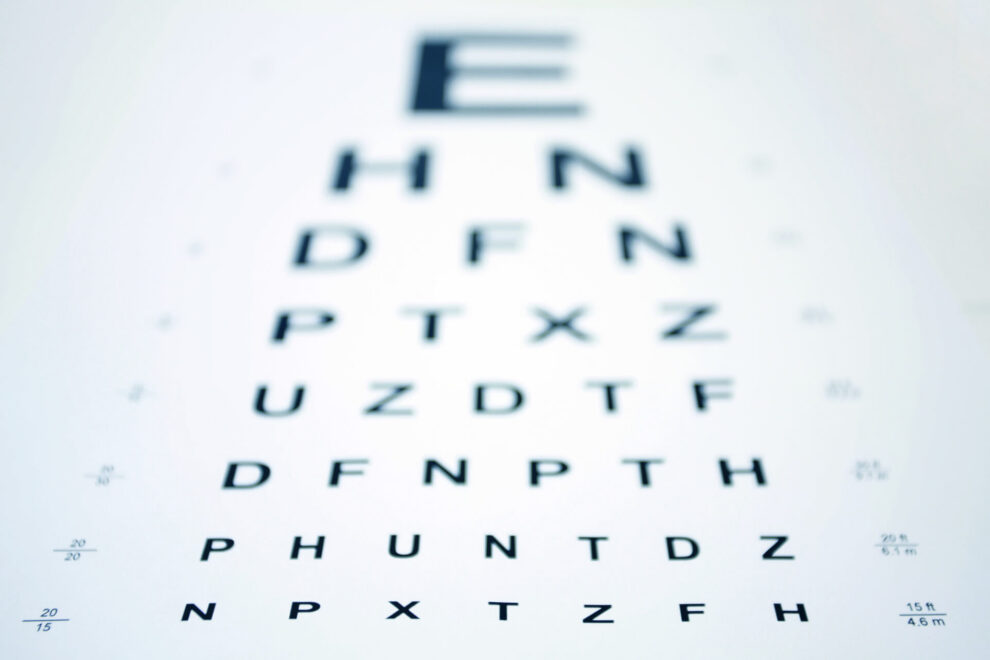Posted by: Kentucky Eye Institute in General Eye Health

Human vision will get worse over time as you age. It’s an entirely normal process to go through, and you’ll need some kind of corrective lenses to compensate at some point. However, it can be challenging to see the warning signs, especially when it comes to your child or loved one.
Avoiding proper eye care can result in all kinds of problems, such as getting into accidents or developing eye disorders. It also means that you’ll live with a lower quality of life than is possible.
Here are seven signs you need glasses and a vision health checkup.
1. Struggling to See at Night
One of the most common signs you need glasses is if you have trouble seeing at night. You’ll usually notice this if you find it difficult to see road signs or environmental obstacles while driving at night. It may also be a problem if you typically have no difficulty navigating your home in the dark.
While night blindness isn’t very serious on its own, it could be a sign of something much worse. At best, it’s just nearsightedness that can be cured with corrective lenses. At worst, it could be something like the beginning of cataracts.
2. Blurry Vision
Another sign that you may be developing eye problems is if your vision becomes consistently blurry. It’s normal for them to blur a little when you’re tired or have dry eyes. However, you should notice if they stay that way and only worsen over time.
Blurry vision can be caused by things such as astigmatism or farsightedness. You may see things further away with clarity while nearby objects grow fuzzy. Or things further away will blur into nothingness.
A good prescription can solve your problem, but it should be updated yearly.
3. Squinting to Focus
If you’ve ever struggled to see something at a distance, you may have squinted your eyes to compensate. Squinting your eyes helps focus on the item and provides a little extra clarity. However, it’s also a sign that you’d be better off buying corrective lenses.
Squinting is a bad habit, and it doesn’t look good. You’ll strain the area around your eyes and develop lines on your face faster. It’s also not as effective as you think it is.
4. Eyes Tire Quickly
Eye strain is one of those symptoms that can be caused by many different sources. Working long hours on your computer can strain your eyes by the end of the day. Spending too much time in windy conditions can dry out your eyes and leave them sore.
What’s essential is tracking eye strain on days when they should otherwise be acceptable. It’s entirely possible that they’re getting tired faster because they’re struggling to focus on distant or nearby objects. Pain can also be a sign of something much more serious.
The solution is to visit your local eye doctor and discover what’s wrong. They can tell you if your vision has changed in recent months and if there are any signs of ocular disease.
5. Frequent Headaches
Like eye strain, frequent headaches may occur due to blurred or deteriorating vision. If you spend long periods struggling to focus, then that can inflame your optic nerve. This nerve is connected directly to your brain and can cause a domino effect.
It’s not uncommon for eye strain to cause migraines that then affect your neck and shoulders.
The solution is simple: reduce your eye strain. If resting your eyes, using eye drops, or taking medication doesn’t help, you may need glasses.
6. Double Vision
Double vision is when you see two images of the same thing, often overlapping. You can simulate this effect if you cross your eyes. However, double vision can be serious if you have it in multiple eyes.
Some causes include cornea issues, cataracts, eye muscle weakness, and nerve problems. It may also be due to some kind of brain condition. Even things like thyroid or migraines can cause double vision.
If you start to see double in one or both eyes, you should seek treatment as soon as possible. Glasses can correct your vision in the case of keratoconus, which is when your cornea changes shape. However, you’ll also need to check your eye health for other problems.
7. Your Eyes Take a While to Adjust for Dark and Light
Typically, it can take your eyes about five minutes to start adjusting to a change in lighting. That means you’ll need to spend a little bit in the dark before you can navigate better. The same goes for entering a bright area.
As you get older, that delay in how your irises contract or expand grows wider. You may find it especially difficult when you’re driving at night, and you have to constantly go between well-lit areas and much darker roads. There’s also the risk that another driver’s flood lights could temporarily blind you.
New glasses can do more than just correct your close and long-distance vision problems. You can purchase prescription sunglasses that work well during the daytime. There are also lenses that automatically tint when exposed to sunlight.
Don’t Ignore the Signs You Need Glasses
Glasses come in various options, so there’s no need to fear them anymore or think they’ll negatively affect your appearance. Additionally, the signs you need glasses may also be signs of more serious eye problems. Scheduling an appointment with your eye doctor should be a routine event.
The Kentucky Eye Institute provides world-class eye care across the Kentucky region. Our services include cataract care, LASIK, glaucoma services, and more.
Contact us with any questions and to schedule an appointment.
